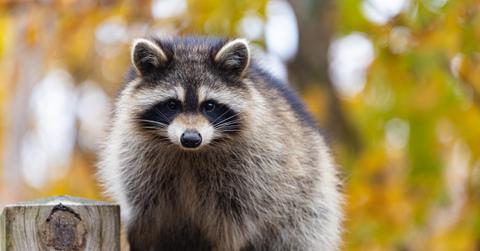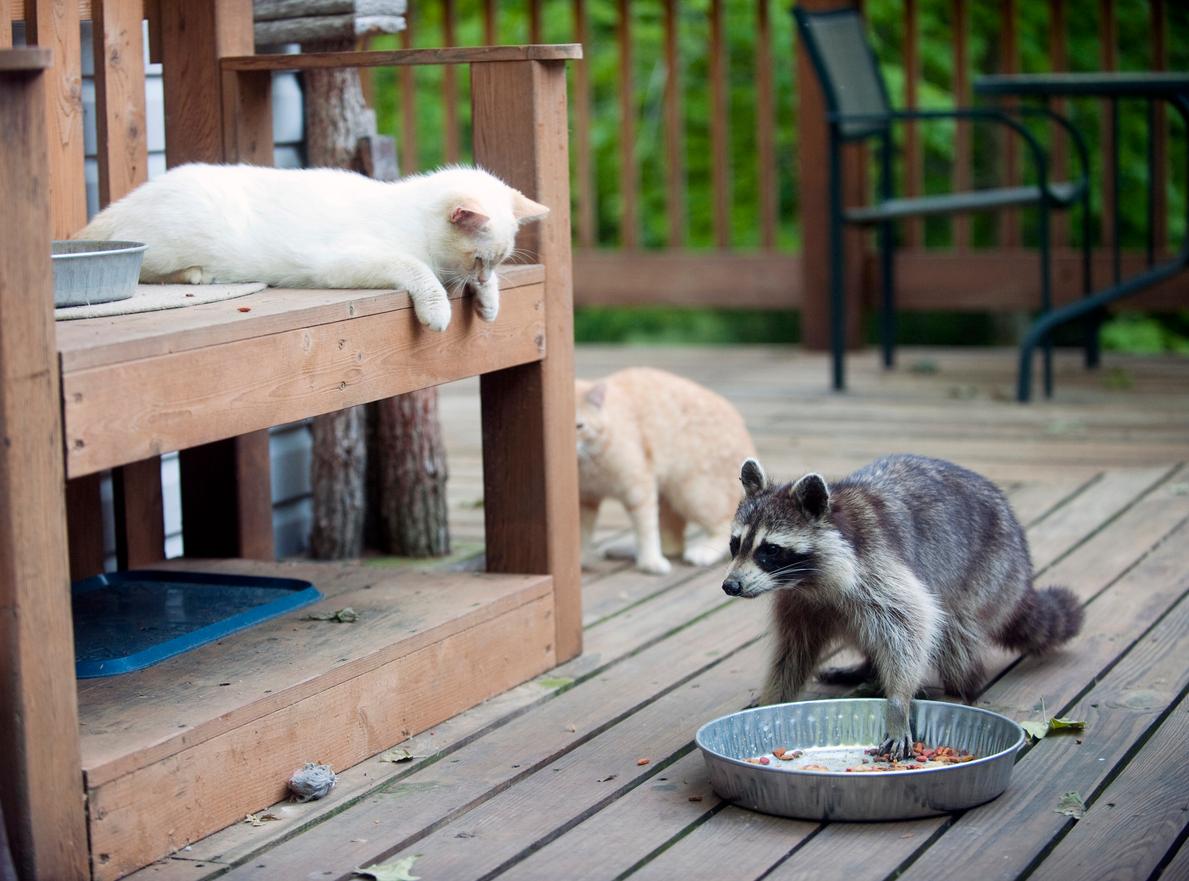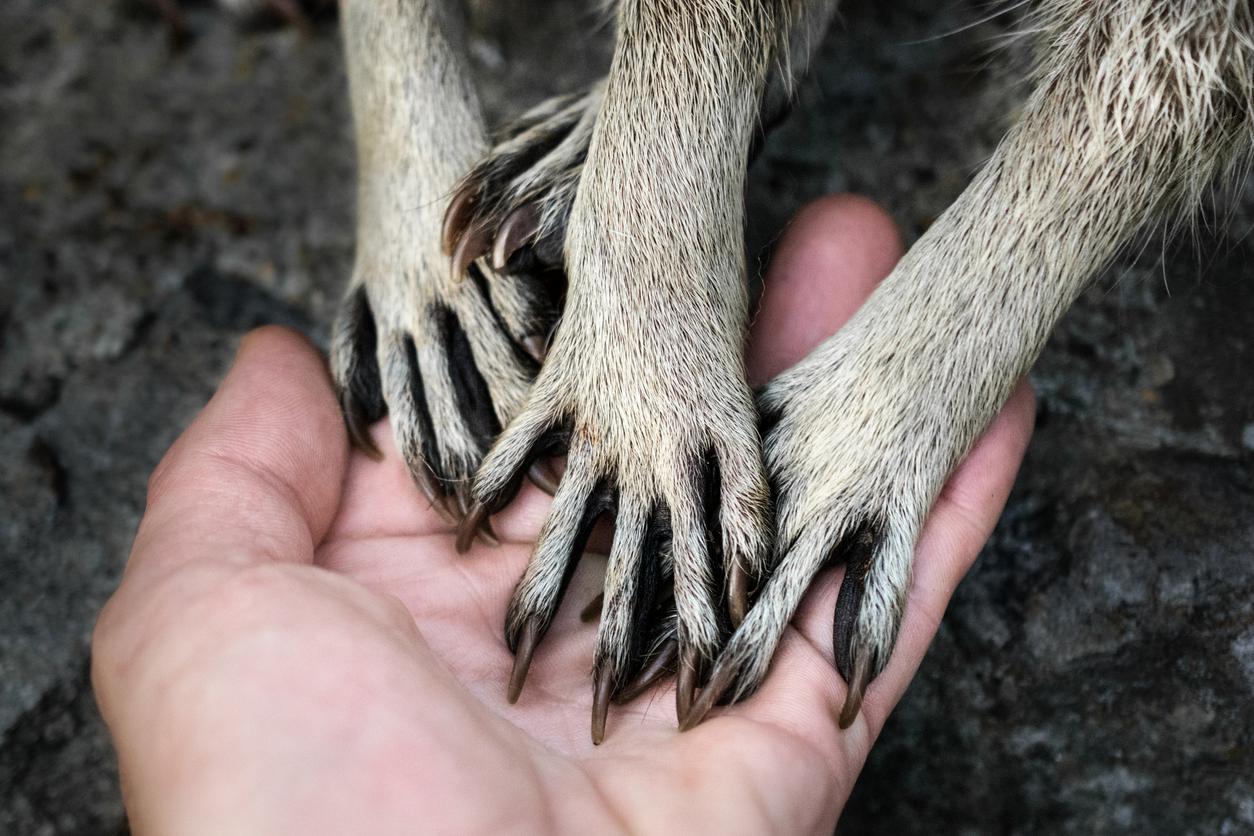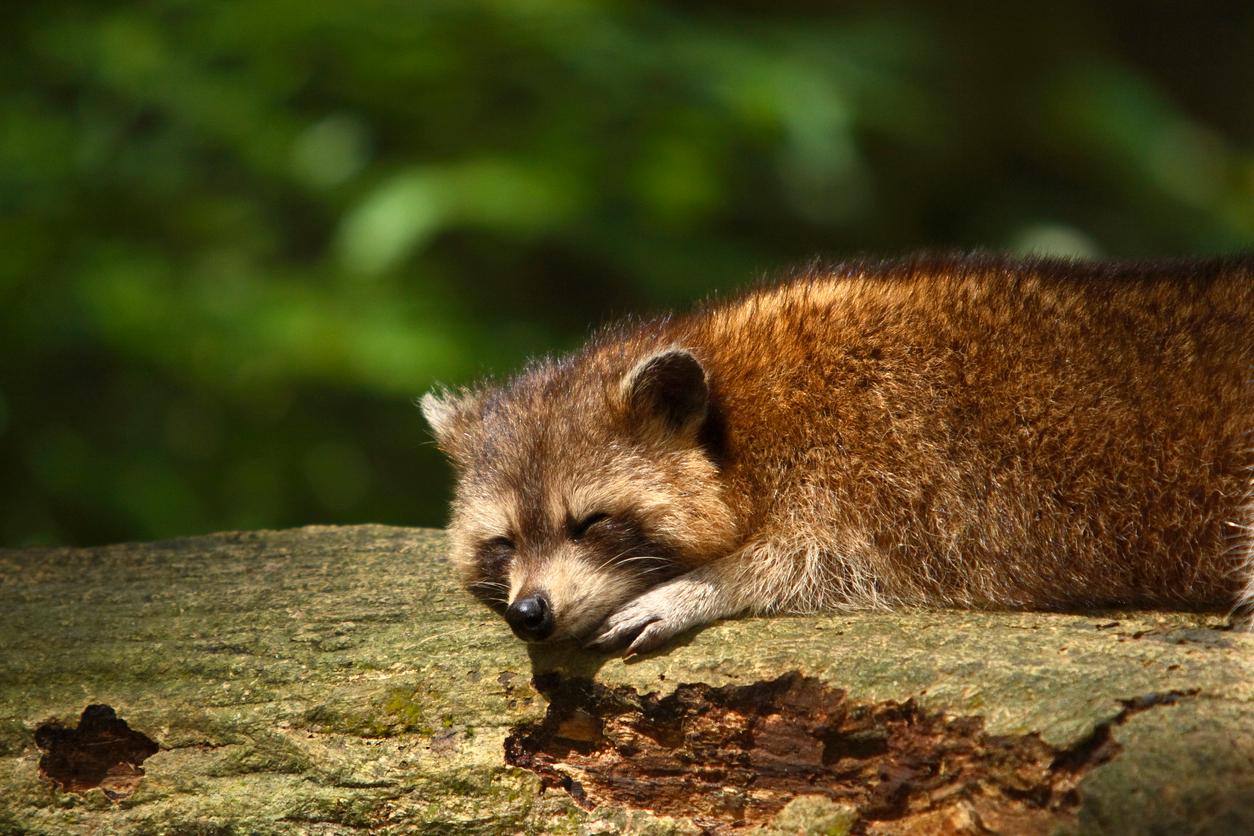Raccoons Get a Bad Reputation — Do All Raccoons Have Rabies? What to Know
When encountering any wild animal, be sure to give plenty of space for their safety — and yours.
Published Nov. 15 2024, 11:45 a.m. ET

Raccoons have become ubiquitous in the popular culture of the U.S., from adorable rescue stories to tales of raccoon brilliance. But amongst these animal anecdotes, does a debilitating disease lurk underneath?
Reports of rabid animals have led some to wonder if all raccoons have rabies.
If raccoons having rabies is an automatic certainty, can they ever be domesticated? Would a raccoon, with or without the rabies virus, ever attack a human?
We answer these questions and more below.

Do all raccoons have rabies?
Fortunately, not all raccoons have rabies, per the New Jersey-based NJ Pest Control. However, according to a Purdue University resource on infectious diseases that raccoons may carry, there are many potential zoonotic diseases, as well as viruses, parasites, and bacteria that can cause a litany of problems for raccoons and humans alike.
From carrying the rabies virus to potentially harboring parasites, the health risks of keeping a raccoon domestically are far too great for humans and companion animals alike. The ethical dilemma of forcing a wild animal to try to become domesticated is similarly dangerous and irresponsible.

Can you domesticate raccoons?
From a legal perspective, yes, raccoons can be pets. According to the World Population Review, raccoons fall under the "exotic animals" category and are thus legal to keep as pets in 19 states in the U.S.
However, the ethical question of whether keeping a raccoon as a pet is responsible, humane, and fair to the raccoon is an entirely different conundrum. For many reasons, it is unethical and potentially dangerous for raccoons and humans alike to try to domesticate a raccoon.
As the Utah-based veterinarian hospital Skyline Animal Hospital explains, President Calvin Coolidge keeping a raccoon as a pet did not set a proper example for an entire nation. Regardless of their intelligence, and the videos you may have seen of adorable raccoons snuggling their human companions, raccoons are wild animals.
Especially for families enjoying the adorable nature of juvenile raccoons, per Skyline Animal Hospital, raccoons can become volatile and unexpectedly aggressive as they age.

Do raccoons attack humans?
Yes, a raccoon can unexpectedly attack a human or companion animal if the raccoon is kept as a pet. Because raccoons are wild animals, they are not inherently docile and may abruptly display aggressive behavior that a human otherwise wouldn't expect.
Per a fact sheet from the Rhode Island Department of Environmental Management, humans can become infected through exposure to a raccoon's saliva or feces. They can also become infected if they are bitten or scratched by a raccoon carrying a virus, bacteria, or parasite.
Where do raccoons sleep?
According to the Canadian wildlife rescue organization Toronto Wildlife Centre, raccoons are nocturnal. Therefore, you may find a raccoon sleeping high up in a tree in nature.
Per the Toronto Wildlife Centre, you may just as well find a raccoon sleeping atop a roof or balcony in city and suburban settings. If you suspect the animal is in danger, or you need support humanely relocating a wild animal away from your home, call your city's animal control professionals.